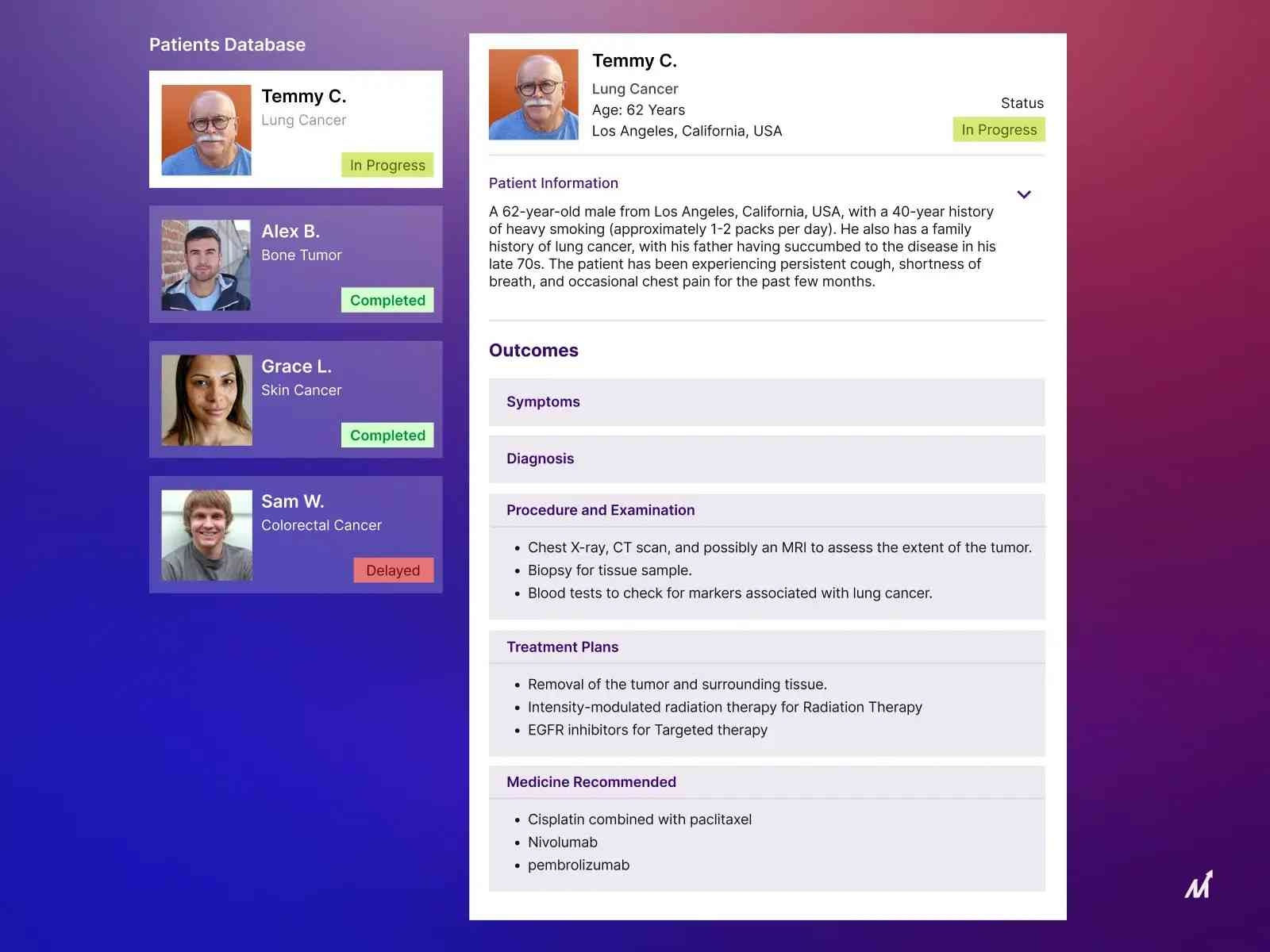Transforming Healthcare: The Role of AI in Personalized Medicine

Personalized medicine is revolutionizing healthcare by tailoring treatments to the unique characteristics of each patient. With the rise of AI in personalized medicine, this vision is becoming a reality. By analyzing vast amounts of data, AI enables healthcare professionals to move beyond traditional approaches and deliver targeted, effective, and individualized care.
From predicting the best treatments to detecting diseases earlier than ever, AI is setting a new standard in medicine.
In this guide, we’ll explore the key components of personalized medicine, AI’s applications in the field, the challenges it faces, and what the future holds for this transformative technology.
The Building Blocks of Personalized Medicine
-
Genomics
Genomics forms the foundation of personalized medicine by studying a patient's genetic makeup. AI tools analyze genetic data to:
-
Predict disease risks
-
Understand how a person may respond to treatments
-
Tailor medications to reduce side effects
-
Biomarkers
Biomarkers such as proteins, genes, and metabolites provide critical insights into a person’s health. They assist in:
-
Identifying disease risks
-
Monitoring treatment efficacy
-
Adjusting therapies in real-time
-
Lifestyle Factors
A person’s lifestyle, including diet, exercise, and sleep patterns, plays a key role in personalized medicine. For instance, a heart patient who follows a healthy lifestyle may require a different treatment plan than one who does not.
These elements combine to create tailored healthcare strategies that improve outcomes for patients.
How AI Enhances Personalized Medicine
1. Genomic Analysis for Targeted Treatments
AI excels in decoding vast genetic datasets to uncover patterns linked to diseases. By leveraging AI, healthcare providers can:
-
Predict Disease Risk: Identify the likelihood of conditions like cancer or diabetes early.
-
Recommend Targeted Therapies: Match treatments to an individual’s unique tumor genetics or disease profile, reducing trial-and-error.
Example:
Memorial Sloan Kettering Cancer Center collaborated with IBM Watson Health to develop 'Watson for Oncology,' an AI system that analyzes patient data and provides tailored cancer treatment recommendations. In one study, Watson’s suggestions matched the expert tumor board’s decisions 93% of the time.
2. Early Detection & Predictive Diagnostics
AI shifts healthcare from reactive to proactive by identifying disease risks before symptoms manifest. Key benefits include:
-
Customized Screening Protocols: AI tailors screening plans based on genetic and lifestyle factors.
-
Improved Diagnostic Accuracy: AI detects subtle patterns in imaging data, leading to earlier and more accurate diagnoses.
Example:
Google Health’s AI, trained on mammograms, outperformed human radiologists in detecting breast cancer, demonstrating AI’s potential for early disease detection.
3. Drug Discovery & Personalized Pharmacology
AI accelerates drug discovery and optimizes treatment plans:
-
Faster Drug Development: AI simulates drug-target interactions to identify promising candidates.
-
Precise Dosage Recommendations: AI determines ideal dosages based on patient-specific data like age, genetics, and health history.
Example:
Insilico Medicine’s AI discovered a potential fibrosis drug in record time, advancing to clinical trials significantly faster than traditional methods.
4. Remote Monitoring & Continuous Care
AI-powered wearables and mobile health apps provide real-time insights into a patient’s health. Applications include:
-
Chronic Disease Management: Monitoring vitals and lifestyle factors to prevent complications.
-
Behavioral Health Support: Tracking mental health data to provide personalized interventions.
Challenges in AI-Driven Personalized Medicine
While the potential is immense, challenges persist:
-
Data Privacy: Ensuring secure handling of sensitive genetic and health data.
-
Bias in AI Models: Avoiding biases that could lead to unequal treatment.
-
Regulatory Compliance: Navigating healthcare regulations to ensure patient safety and trust.
Solutions include transparent data usage policies, robust security measures, and inclusive AI model development.
The Future of AI in Personalized Medicine
AI is set to redefine healthcare by enabling:
-
Better outcomes through tailored treatments
-
Lower healthcare costs
-
Empowered patients who actively manage their health
Collaboration among stakeholders—healthcare providers, researchers, technologists, and regulators—will be critical to realizing its full potential.
How Markovate Can Help
Markovate specializes in AI-driven healthcare solutions to bring personalized medicine to life. We offer:
-
Custom Treatment Plans: AI tools that analyze genetic, clinical, and lifestyle data for precision care.
-
Predictive Insights: Advanced machine learning for early disease detection.
-
Streamlined Drug Discovery: AI-powered platforms that accelerate drug development.
-
Real-Time Decision Support: Integrated tools for on-the-spot clinical recommendations.
-
Secure and Compliant Systems: Solutions that prioritize data security and adhere to healthcare regulations.
Conclusion
AI is transforming personalized medicine by delivering tailored and effective care. With its ability to analyze complex data, predict outcomes, and enhance treatment strategies, AI empowers doctors and patients alike. While challenges remain, the promise of a healthier, more personalized future is within reach.
Interested in exploring AI for personalized medicine? Contact Markovate to unlock innovation in healthcare.
- Industry
- Art
- Causes
- Crafts
- Dance
- Drinks
- Film
- Fitness
- Food
- Oyunlar
- Gardening
- Health
- Home
- Literature
- Music
- Networking
- Other
- Party
- Religion
- Shopping
- Sports
- Theater
- Wellness
- News


